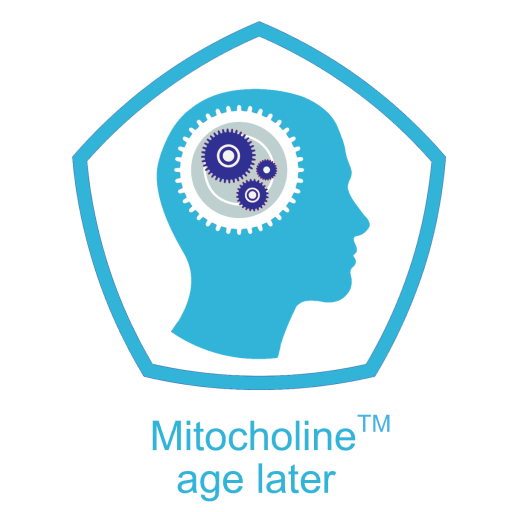Mitochondria are present within every cell of our body, often named as intracellular power producing factories. They generate adenosine triphosphate (ATP), which is a major molecule that transports chemical energy within the cell, fuelling cellular processes. Mitochondria produce about 90% of the chemical energy that cells require for survival. Mitochondria functions in a similar way to the digestive system, which takes in nutrients, breaks them down, and creates energy rich molecules for the cell.
Healthy mitochondrial function is fundamental for the healthy cognition. The brain although only about 2% of the body weight is the most energy consuming organ, utilising 20% of all the energy in the body. It requires a constant uninterrupted supply of “fuel” or ATP and this becomes more important in stressful situations and as we age, when the mitochondrial function starts to decline. Brain mitochondria from the elderly people are characterised by the decreased ATP production and reduced levels of NAD+ which is central signalling enzyme and co-substrate involved in cellular energy metabolism and energy production. Chemical molecules that are utilised for the cellular energy creation are known as mitochondrial substrates.
The brain, although only about 2% of body weight, is the most energy-consuming organ, using 20% of all energy in the body. It requires a constant uninterrupted supply of “fuel” or ATP (adenosine triphosphate production). This is most important as we age, when the functioning of intracellular energy generating machinery, known as mitochondria, starts to decline. This starts from the age of 45 and progresses dramatically in neurodegenerative disorders.
Mitochondrial dysfunction is a sign of aging with research linking it to neurodegenerative diseases. Since mitochondrial function has been identified as crucial for health and longevity, interest in the study of bioenergetics (how cells produce energy), and particularly in the development of new therapies and ways to keep the mitochondria healthy and fully functional, has increased. If your mitochondria are not functioning at their best, neither will you. It is most important as you age, when mitochondrial function starts to decline. Demanding conditions of modern everyday life are draining the brain of energy reserves, thus making people vulnerable and susceptible to stress and mental fatigue, which in turn leads to brain related dysfunctions.

MitocholineTM - maintaining brain health through nutrition
